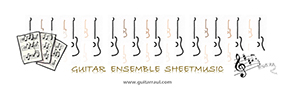Dušan Bogdanović
https://www.academia.edu/273299
Described in 1926 as a “melodically rather insignificant worklet”, barely three minutes
long, Manuel de Falla’s Homenaje remains one of the masterpieces of the guitar
repertoire. Originally written for the 1920 issue of La Revue Musicale, this little piece
was a Tombeau dedicated to the memory of Claude Debussy, one of Falla’s dear friends
and supporters during his stay in Paris (1907-1914), before the outbreak of the World
War I.
The two composers were connected by more than just stylistic affinity: as much as Falla
owed to the Impressionist treatment of harmony and orchestral color, Debussy did to
Iberian folk music idiom- and not only in his works that had overt Spanish influences.
The more obviously Spanish pieces (such as Puerta del vino or Iberia) reveal even more
influence of the folk idiom, particularly in their rhythmic profile and “oriental” modal
approach. Manuel de Falla himself pronounced one of Debussy’s “Spanish” pieces (La
Soirée dans Grenade) the best pianistic reflection of Spain, this distinction being even
more remarkable considering Debussy had never really been to Spain (except for one trip
to San Sebastian)
Homenaje. An Analysis of Manuel de Falla’s Le Tombeau de Claude Debussy





